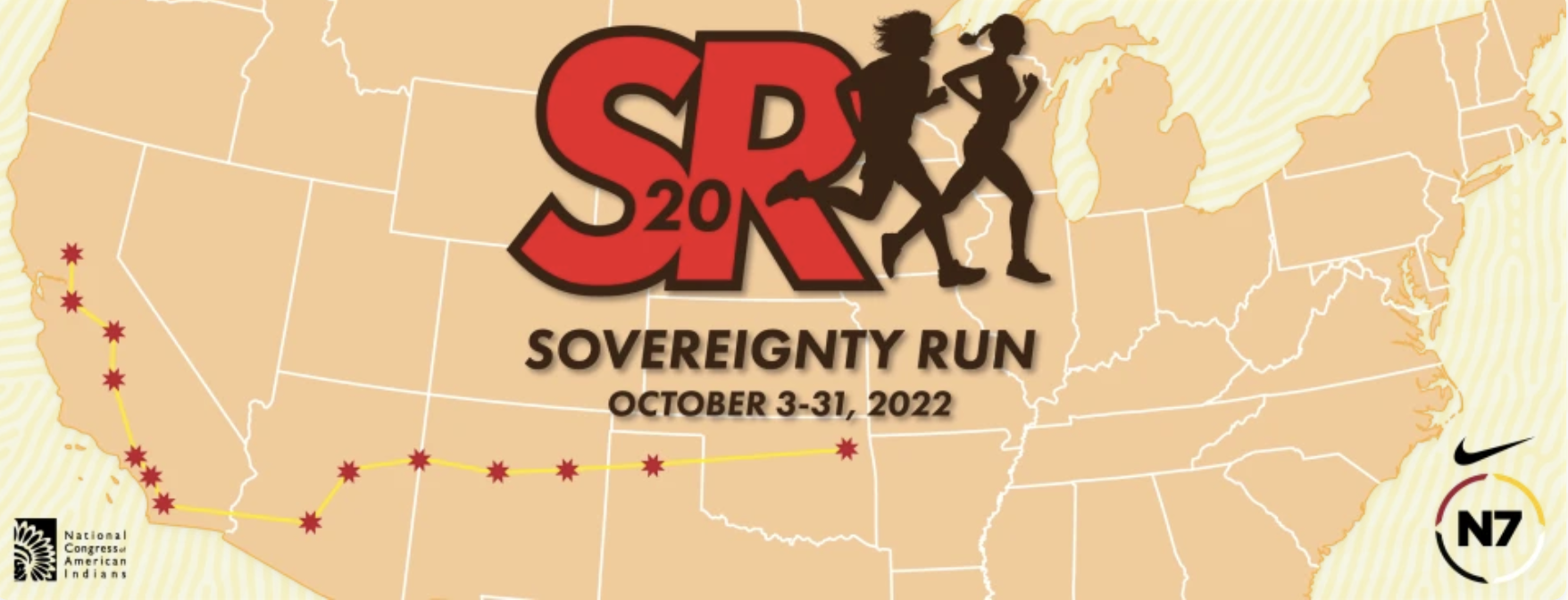
- Details
- By Jenna Kunze
Tribal members are gearing up to run more than 1,700 miles from Oklahoma to California in a show of sovereignty.
The so-called ‘Sovereignty Run’ will be led by Fawn Sharp, president of the National Congress of American Indians (NCAI) and vice president of the Quinault Indian Nation. Sharp organized the first run 20 years ago to call attention to the erosion of tribal sovereignty on reservation lands, an issue she says persists today.
This year’s run also coincides with the reinstatement of Jim Thorpe’s (Sac and Fox, Potawatomi) 1912 Olympic wins.
"We are in a critical time where, once again, our sovereignty is being threatened, and Jim Thorpe's home state of Oklahoma is ground-zero," Sharp said in a statement. “Tribal Nations are strongest when we are unified and create our own 'bright path' forward together. The time to raise our voices—and collective awareness—is now. We are proud to dedicate this journey to fight for our sovereignty to the memory and legacy of Jim Thorpe, and we will carry Jim's strength, tenacity, and courage with us every step of the way.”
The Sovereignty Run will put feet on the ground in: Oklahoma, Texas, New Mexico, Arizona, and California. The run is set to finish in Sacramento, Calif., on Oct. 31— the day tribal leaders across the United States will convene to defend tribal sovereignty at NCAI’s 79th Annual Convention.
Cherokee Nation Principal Chief Chuck Hoskin Jr. said the Nation stands with NCAI in its mission.
“In the past two years, the Five Tribes here in Oklahoma have been challenged on our treaty rights, rooted in law by those who are trying to chip away at tribes and our rights to self-govern,” Hoskin said in a statement. “We have taken to the U.S. Supreme Court steps twice and been reaffirmed that our reservations have always existed, and yet presented with more legal challenges. We look forward to this run and having our Native voices—and running shoes—carrying our message that our Tribal Nations are stronger today and that we will never waiver when it comes to our sovereignty.”
For more information about the Sovereignty Run, including a full schedule of events, visit www.sovereigntyrun.org.
More Stories Like This
Indian Gaming Association Condemns CFTC Over Prediction Markets, Warns of Threat to Tribal SovereigntyCommittee Advances 20% Increase to Navajo Child Support Guidelines
Navajo Committee Advances $84M Transportation Improvement Plan
NCAI Passes Two Emergency Resolutions on Immigration Enforcement Activities
Chickasaw Lighthorse Police Officer named Indian Country Law Enforcement Officer of the Year
Help us defend tribal sovereignty.
At Native News Online, our mission is rooted in telling the stories that strengthen sovereignty and uplift Indigenous voices — not just at year’s end, but every single day.
Because of your generosity last year, we were able to keep our reporters on the ground in tribal communities, at national gatherings and in the halls of Congress — covering the issues that matter most to Indian Country: sovereignty, culture, education, health and economic opportunity.
That support sustained us through a tough year in 2025. Now, as we look to the year ahead, we need your help right now to ensure warrior journalism remains strong — reporting that defends tribal sovereignty, amplifies Native truth, and holds power accountable.
 The stakes couldn't be higher. Your support keeps Native voices heard, Native stories told and Native sovereignty defended.
The stakes couldn't be higher. Your support keeps Native voices heard, Native stories told and Native sovereignty defended.
Stand with Warrior Journalism today.
Levi Rickert (Potawatomi), Editor & Publisher


